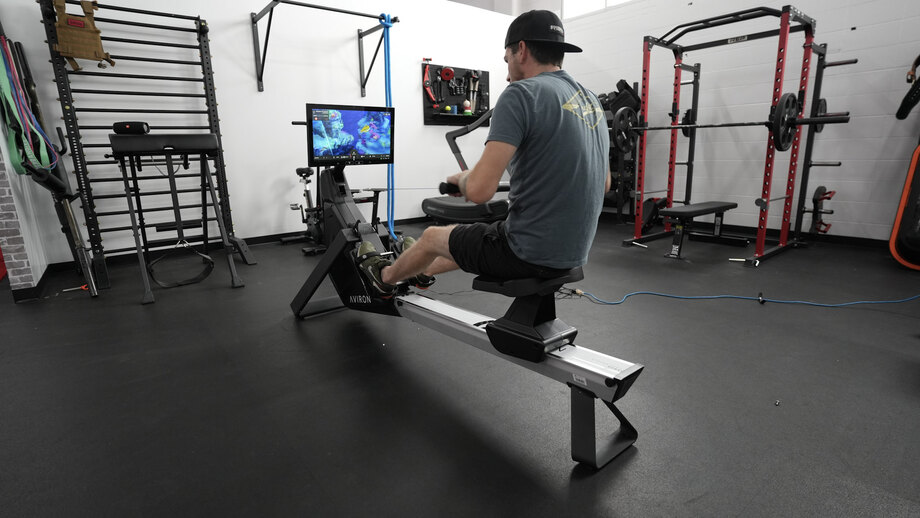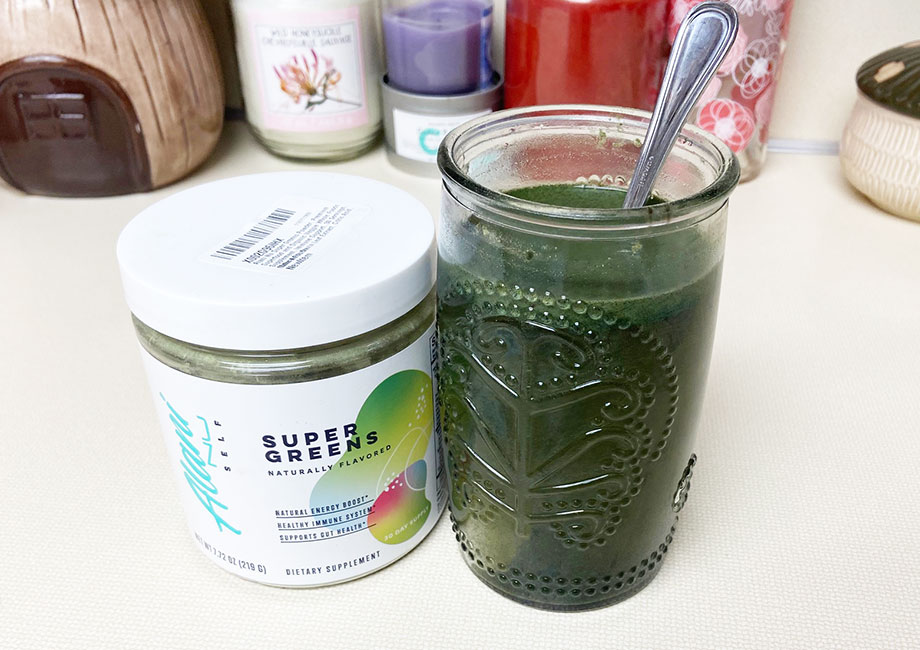Word on the street is that exercising on an empty stomach, aka fasted cardio or fasted workouts, can lead to greater fat burn. While that may or may not be true (we’ll get into this in more detail later), working out while intermittent fasting can have some benefits beyond body composition. But is it safe? The short answer is: yes, for most people—as long as you’re being mindful of your exercise intensity and you don’t have any underlying health problems.
In this article, we’ll define intermittent fasting, highlight some of the benefits and drawbacks as it relates to exercise, and provide some expert-backed safety tips to ensure you’re getting the most out of your workout without putting yourself in harm’s way.
Medical disclaimer: This article is intended for educational and informational purposes only. It is not intended as a substitute for medical advice. For health advice, contact a licensed healthcare provider.
What Is Intermittent Fasting?
Before jumping into working out while intermittent fasting, let’s talk about what it is. At its most basic level, intermittent fasting means you switch between fasting and eating on some type of regular schedule.
One of the most common types of intermittent fasting is time-restricted fasting or 16:8, which means you fast for 16 hours and eat within an 8-hour timeframe. For example, your eating window may be between 11am and 7pm, and then you fast outside of that.
Other types of intermittent fasting include the 5:2 method (you limit calories to 500-600 for two days, and then eat what you want the other five days), One Meal A Day or OMAD (you fast for 23 hours and then eat one large meal in a 60-minute window), and alternate-day fasting (you have fasting windows every other day).
During your fasting period, you can have water and non-caloric beverages, like black coffee, but nothing with calories that would break your fast.
Are There Benefits to Working Out While Intermittent Fasting?
A fasted workout simply means that you’re exercising without eating anything prior. The theory behind a fasted workout is that your body will burn more stored body fat for energy, instead of relying on its preferred energy source: glucose and/or glycogen stores. Proponents say that this can lead to faster weight loss and greater changes in your body composition. But is there any truth to this? Sort of.
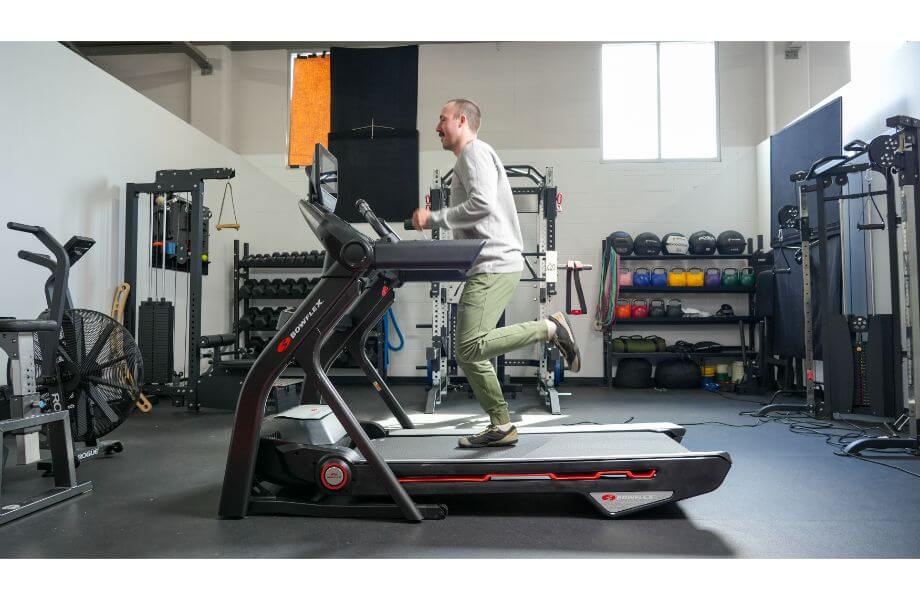
While some studies1 don’t show any difference in body composition changes between fed and fasted workouts, others have shown that working out while intermittent fasting can lead to a higher rate of fat oxidation2. There’s also some evidence in the International Journal of Sport Nutrition and Exercise Metabolism3 that fasted evening exercise can decrease overall calorie intake, which can lead to weight loss over time.
But while the science isn’t totally settled on whether working out in a fasted state will lead to greater weight loss, it does have some other health benefits. One study published in The Journal of Physiology4 found that exercising in a fasted state could improve glucose tolerance and insulin sensitivity in those eating a high-calorie diet.
Fasted exercise also works well for people who prefer to work out on an empty stomach, and it can save you time in the morning if you just want to get out the door and get your workout in. It may also help mitigate exercise-induced nausea5.
RELATED: Morning vs Evening Workout: When Is The Best Time To Exercise?
It’s not all rainbows and butterflies though: That same study in the International Journal of Sport Nutrition and Exercise Metabolism3 showed that fasting could reduce motivation, energy, and overall exercise enjoyment. In other words, if you’re not properly fueled up for an exercise, it can feel like you’re just dragging yourself through it.
When it comes to other measures of overall health and wellness, like heart rate variability, heart rate, and blood pressure, fasted exercise doesn’t seem to have a greater benefit. One small study6 comparing these markers in fed and fasted workouts found no significant difference between the types of exercise.
Working Out While Intermittent Fasting: Strength Training
But what about strength training? Is working out while intermittent fasting a good idea if you’re trying to build muscle? There are mixed feelings about this.
Many people say that you can’t build muscle mass in a calorie deficit, but that’s not entirely true. While trained individuals and bodybuilders may not see much muscle growth without a calorie surplus, beginners and overweight individuals7 can.
There’s also a theory that since intermittent fasting can increase human growth hormone, fasted workouts can actually lead to greater muscle gain, but there hasn’t been enough research on this particular subject to make a call either way.
The downside is that weight lifting and resistance training can be more difficult if your muscles don’t have enough energy to get through it. This can negatively affect your performance, making the workout less effective overall.
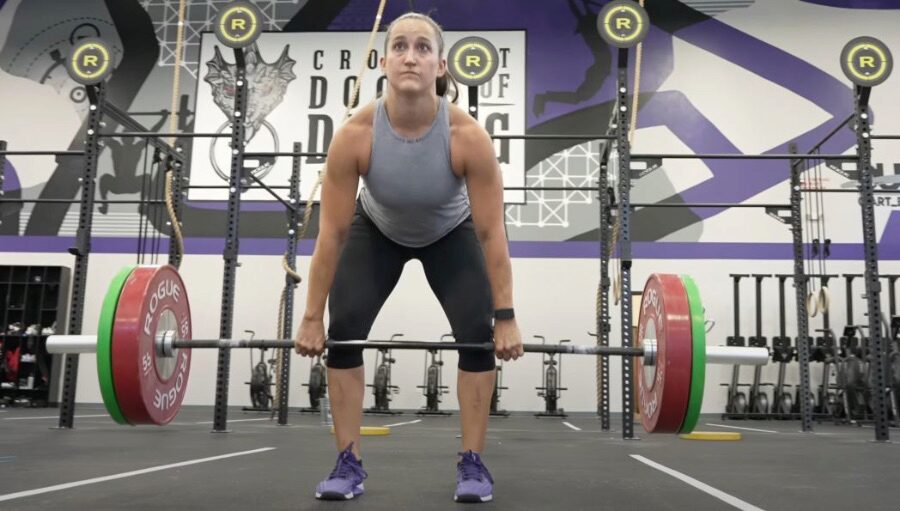
Tips For Working Out While Intermittent Fasting
If you do decide to add fasted workouts to your routine, you need to be smart about it. Here are some expert-recommended tips for safely working out when intermittent fasting.
Stick To Moderate- Or Low-Intensity Workouts
Fasting and high-intensity workouts, like high-intensity interval training (HIIT) typically don’t go hand in hand. “Working out hard for an extended period of time can actually bring about more negative consequences than good when it comes to a fast. If you’re able to stick to moderate exercises without putting too much strain on your body, you should be OK,” says Reda Elmardi, registered dietitian and certified strength and conditioning specialist.
Start With Small Exercise Windows
If you’re new to fasted workouts, don’t just dive right in. Start with 10 to 15 minutes of light cardio, like walking, to ease yourself in. If you feel good after a few days of this, you can slowly increase your time until you get to 30 to 45 minutes.
Fuel Yourself Properly
When intermittent fasting, it becomes especially important to make sure you’re hitting your protein and other nutrient needs during your feeding windows. Reda recommends eating a carbohydrate-rich meal within 30 minutes of finishing your workout to help break your fast, and favoring healthy fats, like olive oil and coconut oil, to help supply lasting energy and satiety without spikes in blood sugar levels throughout the day. Make sure you’re also eating at least 0.8 to 1 gram of protein per kilogram of body weight to help prevent muscle loss.
RELATED: Best Protein Powder
Stay Hydrated
Staying hydrated is key to getting through a fasted workout. “Drink plenty of fluids with electrolytes to rehydrate yourself and replenish lost minerals and salts while breaking your fast,” Reda says. Coconut water, which contains natural electrolytes, is a good choice to hydrate you without the added sugar and/or artificial ingredients that are in some sports drinks.
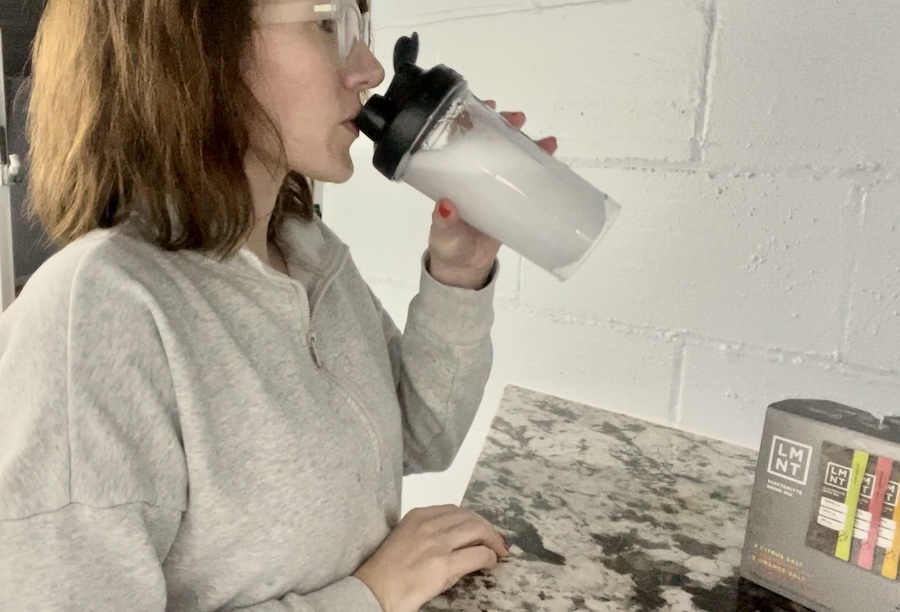
Listen To Your Body
Listening to feedback from your body is important during any exercise, but it’s critical when you’re doing a fasted workout. If you start to feel lightheaded, weak, or dizzy, this can be a sign of low blood sugar or dehydration. If this happens, stop your workout, hydrate, and give your body some light fuel in the form of a protein shake or piece of fruit.
Who Shouldn’t Work Out While Intermittent Fasting
Whether there are benefits or not, there are still some groups of people who shouldn’t work out while intermittent fasting. Skip fasted workouts if:
- You’re pregnant or breastfeeding
- You’re diabetic or have blood sugar regulation issues
- You have extremely high stress levels (fasting and exercise both act as stressors that can be too much for someone who’s already stressed out)
- You have a history of disordered eating
- You’re trying to improve overall exercise performance or doing endurance training
Even if you don’t fall into one of the above categories, it’s a good idea to chat with your doctor, a qualified nutritionist, or dietitian who can help you decide if working out while intermittent fasting is a good idea for you.
Working Out While Intermittent Fasting: Final Thoughts
Working out while intermittent fasting may lead to greater fat loss and better blood sugar regulation, but there are some downsides, like decreased energy and less exercise enjoyment, too. At the end of the day, it really comes down to what works for you. If you prefer to work out on an empty stomach and you feel good when you’re doing it, then keep it up. If you have blood sugar regulation issues and find it difficult to get through a workout without eating first, make sure you’re fueling up properly before your workouts.
Working Out While Intermittent Fasting: Q&A
When Should You Work Out While Intermittent Fasting?
This partly comes down to personal preference, but working out early in the morning can be beneficial. This makes it more likely that you’ll still have enough energy to get through your workout. Going too long without food before you exercise can negatively impact your workout performance and your motivation.
Will I Lose Muscle If I Work Out While Fasting?
Not necessarily. If fasting throws off your macros and you end up eating a very low-calorie, low-protein diet, then there is a risk of losing muscle. But this is true of any restrictive diet, whether you’re fasting or not. The key to maintaining lean muscle mass is to ensure that you’re meeting your protein and calorie requirements during your eating period, and that you’re not working out for too long on an empty stomach.
Is It OK To Lift Weights While Intermittent Fasting?
Yes, it’s OK to lift weights while intermittent fasting, but you shouldn’t try to hit PRs without any fuel. Just like with aerobic exercise, you should keep fasted weight training low to moderate in intensity.
These statements have not been evaluated by the Food and Drug Administration. This product is not intended to diagnose, treat, cure, or prevent any diseases.
References
1. Schoenfeld, BJ, Aragon, AA, Wilborn, CD, Krieger, JW, Sonmez, GT. Body composition changes associated with fasted versus non-fasted aerobic exercise. J Int Soc Sports Nutr. 2014;11(1):54. doi:10.1186/s12970-014-0054-7
2. Vieira, AF, Costa. RR, Macedo. RC, Coconcelli, L, Kruel, LF. Effects of aerobic exercise performed in fasted v. fed state on fat and carbohydrate metabolism in adults: a systematic review and meta-analysis. Br J Nutr. 2016;116(7):1153-1164. doi:10.1017/S0007114516003160
3. Slater, T, Mode, WJA, Pinkney, MG, et al. Fasting before evening exercise reduces net energy intake and increases fat oxidation, but impairs performance in healthy males and females. Int J Sport Nutr Exerc Metab. 2022;33(1):11-22. doi:10.1123/ijsnem.2022-0132
4. Van Proeyen, K, Szlufcik, K, Nielens, H, et al. Training in the fasted state improves glucose tolerance during fat-rich diet. J Physiol. 2010;588(Pt 21):4289-4302. doi:10.1113/jphysiol.2010.196493
5. Kondo, T, Nakae, Y, Mitsui, T, Kagaya, M, Matsutani, Y, Horibe, H, Read, N.W. Exercise-induced nausea is exaggerated by eating. Appetite. 2001;36(2):119-125. doi: 10.1006/appe.2000.0391
6. Rodrigues, JAL, Yamane, AC, Gonçalves, TCP, Kalva-Filho, C, Papoti, M, Júnior, CRB. Fed and fasted states on heart rate variability, hemodynamic heart rate and blood pressure in adults submitted to moderate aerobic exercise. Int J Cardiol Heart Vasc. 2019;23:100378. Published 2019 May 16. doi:10.1016/j.ijcha.2019.100378
7. Slater, GJ, Dieter, BP, Marsh, DJ, Helms, ER, Shaw, G, Iraki, J. Is an energy surplus required to maximize skeletal muscle hypertrophy associated with resistance training. Front Nutr. 2019;6:131. doi:10.3389/fnut.2019.00131


